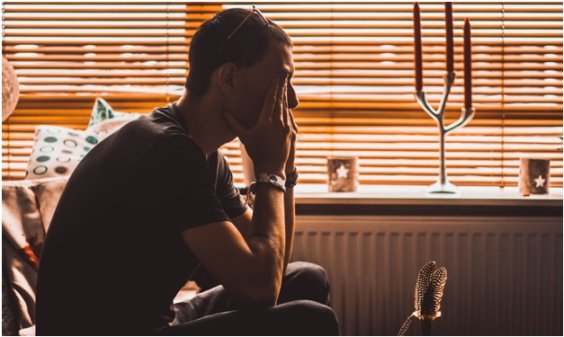Want to know something that might surprise you?
When you think about personal injury, your mind probably jumps straight to broken bones, cuts, and bruises. After all, those are the injuries you can actually see, right?
Here’s the thing…
The mental health impact of personal injury is often way more devastating than the physical damage. And yet, it’s the one aspect that gets overlooked the most.
Personal injury victims don’t just deal with medical bills and rehabilitation. They’re battling invisible wounds that can last years — sometimes even longer than their physical recovery.
Table of Contents
What you’ll discover:
- The Hidden Mental Health Crisis Behind Personal Injury
- How Trauma Rewires Your Brain After an Accident
- The Most Common Psychological Injuries You Need to Know About
- Why Your Mental Health Recovery Matters for Your Legal Case

The Hidden Mental Health Crisis Behind Personal Injury
Personal injury law exists for one simple reason: to help people rebuild their lives after someone else’s negligence changes everything.
But here’s what most people don’t realize…
Motor vehicle accidents account for 52% of all personal injury cases, and these aren’t just fender-benders. We’re talking about life-altering events that leave deep psychological scars.
Think about it. One moment you’re driving to work, and the next moment your entire world gets turned upside down. The physical injuries might heal in months, but the mental trauma? That’s a completely different story.
Here’s the shocking reality:
About 7-8% of people will experience PTSD at some point in their lives. And personal injury victims? They’re at an even higher risk.
When someone experiences a serious accident, their brain doesn’t just “get over it.” The trauma creates lasting changes that affect how they think, feel, and function in their daily lives.
How Trauma Rewires Your Brain After an Accident
Personal injury trauma is like having your brain’s alarm system get stuck in the “on” position.
After a traumatic accident, your brain becomes hyper-focused on potential threats. It’s constantly scanning for danger, even when you’re completely safe. This isn’t weakness — it’s your brain trying to protect you from experiencing that trauma again.
But here’s the problem:
This hypervigilance is exhausting. It drains your mental energy and makes simple tasks feel overwhelming. Many accident victims report feeling like they’re “not themselves” anymore.
The changes happen in three key areas of your brain:
- The amygdala becomes overactive, triggering fight-or-flight responses at inappropriate times
- The hippocampus struggles to process and store traumatic memories properly
- The prefrontal cortex has difficulty regulating emotions and making clear decisions
That’s why injury lawyers who understand personal injury law emphasize the importance of documenting both physical and mental health impacts. These brain changes are real, measurable, and deserve compensation.
The Most Common Psychological Injuries You Need to Know About
Personal injury doesn’t just happen to your body — it happens to your entire life.
Let me break down the psychological injuries that frequently follow accidents:
Post-Traumatic Stress Disorder (PTSD)
PTSD is probably the most well-known psychological injury, but it’s often misunderstood.
PTSD isn’t just “being scared” or “getting nervous.” It’s a complex condition where trauma memories intrude on your daily life through flashbacks, nightmares, and severe anxiety.
Here’s what makes PTSD particularly challenging:
People with PTSD might avoid driving completely after a car accident. They might refuse to go to certain places or participate in activities they once loved. Some victims can’t even sleep properly because their brain won’t “turn off” the trauma response.
Research shows that 4.8% of people had PTSD 12–15 years following suspected serious injury. That means this isn’t something that just goes away with time.
Depression and Anxiety
Depression after a personal injury isn’t the same as feeling sad about your situation.
Clinical depression involves persistent feelings of hopelessness, worthlessness, and despair that interfere with your ability to function. When your life gets disrupted by an accident, everything you used to do easily becomes a struggle.
Anxiety manifests differently but is equally debilitating. Some victims develop specific phobias related to their accident. Others experience generalized anxiety where everything feels threatening and overwhelming.
The statistics are sobering:
57.8 million adults in the US have some form of mental illness. Personal injury victims are disproportionately represented in these numbers because trauma significantly increases the risk of developing mental health conditions.
Sleep Disorders and Emotional Numbing
Sleep becomes a battleground for many accident victims.
Nightmares, insomnia, and sleep disturbances affect up to 70-90% of people with PTSD. When you can’t sleep, everything else gets worse. Your physical healing slows down, your emotional regulation suffers, and your ability to cope with daily stressors diminishes.
Emotional numbing is another common response where victims feel disconnected from their emotions, relationships, and activities they once enjoyed. It’s your brain’s way of protecting you from feeling too much pain, but it also prevents you from feeling joy, love, and connection.
Why Your Mental Health Recovery Matters for Your Legal Case
Mental health injuries are just as real and compensable as physical injuries.
Here’s what you need to understand:
Personal injury law recognizes that trauma affects your entire life, not just your body. Courts and insurance companies increasingly acknowledge that psychological injuries can be more debilitating and longer-lasting than physical ones.
But documenting mental health injuries requires a different approach than photographing a broken leg.
You need professional documentation from qualified mental health providers. This includes therapy records, psychiatric evaluations, and detailed accounts of how the trauma has impacted your daily functioning.
The compensation can cover:
- Therapy and counseling costs
- Psychiatric medications
- Lost wages due to mental health symptoms
- Pain and suffering related to psychological trauma
- Future mental health treatment needs
Don’t make the mistake of thinking you need to “tough it out” or that seeking mental health treatment makes you look weak. Getting proper psychological care strengthens your case by creating a documented trail of how the accident has affected your life.
Taking Action for Your Mental Health Recovery
Recovery from psychological trauma takes time, patience, and professional support.
The first step is recognizing that what you’re experiencing is normal. Trauma responses aren’t a sign of weakness — they’re evidence that something significant happened to you.
Professional therapy, particularly trauma-focused treatments like cognitive behavioral therapy and EMDR, can help your brain process the traumatic experience and develop healthier coping mechanisms.
Don’t wait for a legal settlement to start taking care of your mental health. Early intervention often leads to better outcomes and can prevent trauma symptoms from becoming chronic.
Remember this:
Your mental health recovery is just as important as your physical recovery. Both deserve attention, care, and compensation when someone else’s negligence has caused your suffering.
Wrapping Up the Reality
Personal injury law covers both the injuries you can see and the ones you can’t.
Mental health impacts following accidents are real, documented, and compensable. Whether you’re dealing with PTSD, depression, anxiety, or other psychological injuries, these conditions deserve the same serious attention as broken bones or torn ligaments.
The key takeaways:
- Psychological injuries are common after personal injury accidents
- Mental health symptoms can last longer than physical injuries
- Professional documentation strengthens your legal case
- Early treatment often leads to better recovery outcomes
Don’t let anyone minimize the psychological impact of your accident. Your mental health matters, your trauma is valid, and you deserve comprehensive compensation that addresses all aspects of how the injury has affected your life.




